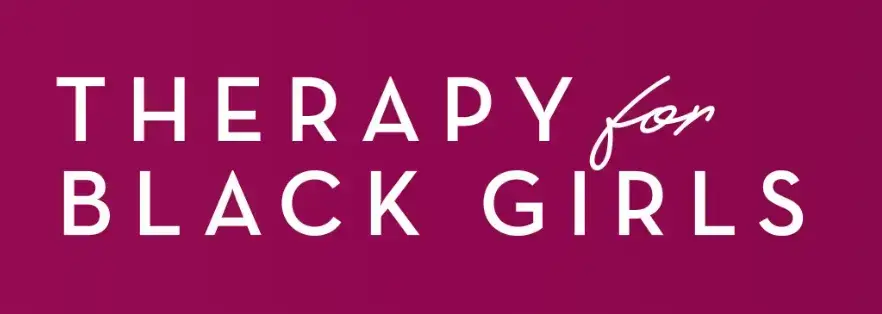How to Find Therapy for Your Teen
(& Actually Get Them To Go)
Leave Your Info
Follow Us on Social 😊🧠
Let’s face it, finding therapy for your teen, and them getting them to actually go to therapy can be a tough sell. So, how do you make therapy seem less like a punishment and more like a helpful resource? There are many reasons that teens may resist therapy, and many of those reasons are the same reasons why we as adults resist therapy! Even just acknowledging that similarity with your teen may help decrease the stress and pressure your teen might be feeling.
Why Teens Resist Therapy
Just like adults, teens may feel the same resistance to therapy due to stigma, embarrassment or fear of the unknown. Some teens may resist therapy for other reasons, like not wanting to appear weak, or just the thought that talking to a stranger won’t change anything. It’s important to understand that this resistance is pretty normal. Teens are in a phase where they’re figuring out their identity, and admitting they need help doesn’t always fit into the image they want to portray.
Choosing the Right Therapist, & type of therapy for your Teen
Finding the right therapist for your teenager is like finding the perfect pair of sneakers: it needs to be the right fit. If your teen is open to the discussion, ask them what they feel would make the therapeutic relationship more comfortable. Gender, age, race, background, and even location can play a role in the therapist-client connection.
Therapy for your teen might have to get a little creative too. This may mean finding a therapist who specializes in, and tailors their approach, to working with teens. The therapy office may look less formal, the treatment options may include play therapy, art therapy and walk-and-talk therapy. These therapy approaches can help your teen establish trust and connection with the therapist.
Ask for recommendations, and don’t be shy about trying a few before settling on the best match. We encourage parents and teens to vet, or interview, therapists before jumping into full on therapy. This may look like a quick video call or phone call, reviewing the therapists website and social media or emailing a few questions like “what type of therapy for teens do you offer?” or “how do you help teens who have difficulty opening up?”
Don’t be afraid to ask questions– remember, you’re hiring a professional to do a job, and very very important one!
Getting Your Teen To *Actually Go* to Therapy
How do you get a teenager to be open tot he idea of therapy without it turning into a battle?
- We encourage starting off with an open dialogue about therapy, mental health, and wellness for teens. Listening to your teen, even when they are expressing resistance, can give you a lot of insight about what may help them turn a corner.
- Approach it like a two-way conversation, not a lecture. Teens who are active in the planning stage of therapy tend to be more engaged and have more positive results from therapy. It would be helpful to ask your teen what the pros and cons are of going to therapy, and discuss any barriers that they foresee.
- An obvious, but often overlooked barrier is time. Teens want to go out with their friends, they have a ton of homework and they are just too busy for therapy. Online therapy might be the barrier-break that they need. It’s convenient and offers a modern approach to therapy
- If your teen is reluctant to go to therapy and expresses that they feel intimidated, shy or embarrassed, you could suggest attending the first session together or offer to wait in the lobby if they want some independence. Show support and understanding, not judgment.
- If your teen expressed that it would be “weird to talk to a total stranger” it’s okay to validate. Then, go ahead and take a page out of their book by looking through various therapists social media platforms and websites to learn about their style, personality and vibe.
Finding therapy for your teen is hard, but it's not impossible.

Mental health support is as important for teenagers as their physical health. It’s about building resilience and giving them tools to navigate life’s ups and downs. Remember, convincing a teen to try therapy isn’t about winning an argument; it’s about showing them there’s strength in seeking help and that therapists aren’t there to tell them what to do, but instead, show them how to do the things they want to do.
FAQ's About Therapy in New Jersey
Where are you located? I need a therapist near me
We are fully online, which means that your therapy sessions will be help via video call on our HIPAA compliant Platform. Anyone in New Jersey can access our therapy services
How do I get started as a new client?
New Clients can reach out to us directly via call, text or email here:
Does my insurance cover my visits?
We provide”Courtesy Billing” for clients who are using the Out-of-network insurance benefits.
Our Insurance Page shares a small blurb about Why We Left Insurance Panels
What are out-of-network benefits?
When using OON benefits, patients typically pay the full cost of the treatment upfront and then file a claim with their insurance company for reimbursement. The amount of reimbursement can vary depending on the plan, but it can sometimes be as high as 90%. Call your insurance to see if you have OON benefits or click here to call us and we can check for you!
Is Online Therapy As Effective As In-Person Therapy?
Online therapy is essentially face-to-face counseling, just conducted remotely. Studies show that tele-therapy is as effective as traditional counseling. Professional organizations and state governments recognize its benefits and have set regulations for it. However, like any therapy, its success in achieving your goals isn’t guaranteed. It’s important to discuss with your therapist whether tele-therapy is working for you.
How Should I Prepare for My First Session?
Showing up is all that you need to do! But if you really want to get the most out of session, it could help to take some time to think about what you want from therapy. It helps to write down your goals, questions you have or things that you feel are important to share.
Do you offer traditional talk therapy?
of course! though we have some unconventional therapy approaches, we are rooted in evidenced based practices. Talk therapy is a major player in the therapy room! See What we Treat and Integrative Services for more information
Is Virtual Counseling Suitable for Everyone?
Online therapy might not be as effective for individuals with chronic suicidal thoughts, severe trauma, significant mental health history, or those recently in intensive care. Such cases often benefit more from traditional, in-person counseling. We’ll help you decide if our online services are right for you during your intake and evaluation.
Can I Change Therapists If I'm Not Happy?
Yes, you can switch therapists to another provider within the practice, or we can provide you a referral if preferred. We want to ensure that your time and effort are well spent, and that you are getting the relief you need, that’s why we work collaboratively with each other in the practice, as well as outside therapists who we know and trust.
How Do I Know If Therapy Is Helping?
You should feel like you’re making progress. Signs it’s working include:
- Feeling comfortable talking to your therapist
- Your therapist respects boundaries
- You’re moving towards your goals
- You feel listened to
You’re doing better in life - Your self-esteem is getting better
What is your cancellation policy?
We ask that clients provide at least 24 hours notice in the event that they need to cancel to avoid the 50% cancellation fee. we understand that life happens and do our best to be flexible & reschedule.
What Geographic Areas Are Served?
Currently, we serve clients in New Jersey and are expanding to other states as telehealth laws evolve. While telehealth offers the convenience of attending sessions from anywhere, state laws require clients to be in-state during their session.
Is Online Therapy Easy to Use for Non-Tech-Savvy People?
Yes, it’s pretty simple to access sessions. You’ll need basic internet skills, such as opening and visiting the patient link sent to you via email. It’s similar to video chatting like Facetime or Zoom. We can also walk you through it on the phone the first time to ensure a strong connection
What Questions Should I Ask My New Therapist?
Feel free to ask anything. Some good questions are:
- How often will we meet?
- What do you specialize in?
- What experience do you have with my issue?
- What outcomes can I expect?
- How will I know I’m progressing?
- How long do you usually work with clients?
- How will we set my treatment goals?
What is the difference between associate therapists & fully licensed therapists?
Our Qualifications:
Our founder, Rebecca Sidoti, is a highly qualified, state-licensed therapist and supervisor with extensive training in anxiety related disorders and innovative treatment such as Ketamine Therapy. Mind by Design Counseling adheres to standards set by the our governing counseling boards.
To see each providers credentials, training and licenses, visit our “Meet the Therapists” Page to learn more.
- LAC/LSW are therapists who may practice clinical work under the supervision of a fully licensed therapist.
- LPC/LCSW are therapists who have completed the necessary clinical hours post-graduation under supervision and can practice clinical work independently.










